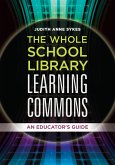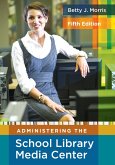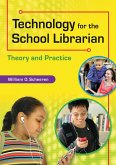This simple guide provides valuable insights for transforming an out-of-date public, school, or academic library into a thriving, user-centric learning commons.
The goal of the learning-commons strategy is to provide a centralized, "go-to" location for all users seeking help on the complex issues of teaching, researching, and being a global citizen in our changing world. A library organized around the learning-commons construct fosters collaborative work and social interaction between users during research and learning. This paradigm also encourages use of innovative technologies and information resources. Transforming a traditional library into a thriving learning commons does take some planning and effort, however.
Each of the seven chapters in this book explains a simple step that a librarian can take to improve their facility. Photographs and concrete examples of the suggested strategies are included; checklists at the end of each chapter serve as indicators for measuring progress. This text is useful for library administrators in school settings (both public and private, K-12) as well as academic, public, and special libraries.
The goal of the learning-commons strategy is to provide a centralized, "go-to" location for all users seeking help on the complex issues of teaching, researching, and being a global citizen in our changing world. A library organized around the learning-commons construct fosters collaborative work and social interaction between users during research and learning. This paradigm also encourages use of innovative technologies and information resources. Transforming a traditional library into a thriving learning commons does take some planning and effort, however.
Each of the seven chapters in this book explains a simple step that a librarian can take to improve their facility. Photographs and concrete examples of the suggested strategies are included; checklists at the end of each chapter serve as indicators for measuring progress. This text is useful for library administrators in school settings (both public and private, K-12) as well as academic, public, and special libraries.









